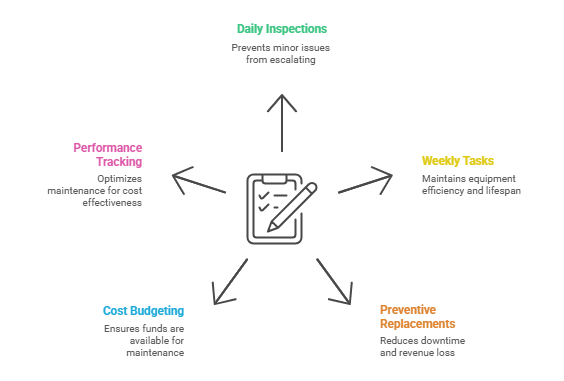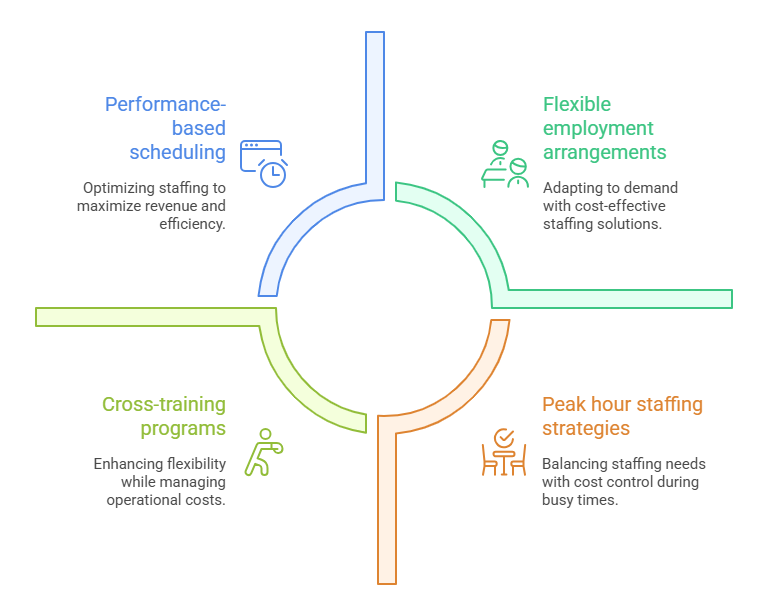How to Manage Cash Flow for Car Wash Operations
Running a successful car wash business requires more than just keeping vehicles clean. The key to long-term success lies in understanding how to manage cash flow for car wash operations effectively. From handling fluctuating water bills to coordinating maintenance scheduling, car wash owners face unique financial challenges that demand strategic planning and consistent monitoring.
Cash flow management in the car wash industry involves balancing multiple variables that can impact profitability. Equipment maintenance costs, staff allocation decisions, and utility expenses all play crucial roles in determining whether your business maintains healthy margins. Without proper financial oversight, even profitable operations might struggle with repayment consistency and operational stability.
This comprehensive guide explores proven strategies that can help car wash operators optimize their financial performance while maintaining service quality and equipment reliability.
Understanding Cash Flow Margins and Financial Benchmarks
Understanding cash flow margins and financial benchmarks forms the foundation of effective car wash financial management. These metrics provide operators with the insights needed to make informed decisions about operational expenses and growth strategies.
- Target margin ranges: Car wash operations typically aim for adjusted cash-flow margins between 40% to 65%, which helps ensure sufficient liquidity for operational needs and repayment obligations.
- Regular monitoring systems: Implementing weekly or monthly reviews of cash flow statements allows operators to identify trends and address potential issues before they impact business stability.
- Expense categorization: Breaking down costs into fixed expenses like equipment financing and variable costs such as water bills helps create more accurate financial forecasts.
- Profitability tracking: Monitoring revenue per wash against operational costs provides clear visibility into business performance and helps identify opportunities for improvement.
- Seasonal adjustments: Accounting for seasonal variations in customer volume and utility costs ensures more accurate cash flow projections throughout the year.
Strategic Maintenance Scheduling for Cost Control
Strategic maintenance scheduling for cost control represents one of the most effective ways to protect cash flow in car wash operations. Preventive maintenance helps avoid costly emergency repairs while keeping operational expenses predictable and manageable.

- Daily inspection routines: Establishing daily checks of equipment functionality, water pressure systems, and cleaning mechanisms can prevent minor issues from becoming major expenses.
- Weekly maintenance tasks: Scheduling regular cleaning and calibration of key components helps maintain equipment efficiency and extends operational lifespan.
- Preventive replacement schedules: Planning component replacements before failure occurs reduces downtime and helps avoid revenue loss during peak business periods.
- Maintenance cost budgeting: Setting aside a specific percentage of revenue for maintenance expenses ensures funds are available when needed without disrupting cash flow.
- Equipment performance tracking: Monitoring equipment efficiency and maintenance costs over time helps identify patterns and optimize maintenance scheduling for maximum cost effectiveness.
Optimizing Water Bills and Utility Management
Optimizing water bills and utility management requires careful attention to usage patterns and system efficiency. Water costs often represent a significant portion of car wash operational expenses, making effective management crucial for maintaining healthy cash flow.
- Water recycling systems: Installing reclaim systems can reduce water consumption by up to 80%, significantly lowering monthly utility bills and improving profit margins.
- Usage monitoring technology: Implementing flow meters and monitoring systems helps identify leaks, inefficiencies, or equipment malfunctions that increase water consumption unnecessarily.
- Peak hour management: Understanding utility rate structures and scheduling water-intensive operations during off-peak hours may reduce overall costs in areas with time-of-use pricing.
- Regular system audits: Conducting monthly reviews of water usage patterns helps identify trends and opportunities for further optimization of consumption and costs.
- Equipment efficiency upgrades: Investing in high-efficiency nozzles, pumps, and pressure systems might reduce long-term utility expenses while maintaining service quality.
Effective Staff Allocation and Labor Cost Management
Effective staff allocation and labor cost management directly impacts both service quality and financial performance. Balancing adequate staffing levels with cost control requires strategic planning and ongoing adjustment based on business volume patterns.

- Peak hour staffing strategies: Analyzing customer traffic patterns helps determine optimal staffing levels during busy periods while avoiding unnecessary labor costs during slower times.
- Cross-training programs: Training employees to handle multiple tasks increases operational flexibility and may reduce the need for additional staff during peak periods or absences.
- Performance-based scheduling: Implementing scheduling systems that match staffing levels to expected revenue helps maintain labor cost percentages within target ranges.
- Productivity tracking systems: Monitoring employee efficiency and customer satisfaction scores helps identify training needs and optimize staff allocation decisions.
- Flexible employment arrangements: Using part-time or seasonal workers during high-demand periods allows operators to adjust labor costs based on actual business needs and revenue fluctuations.
Building Repayment Consistency and Financial Stability
Building repayment consistency and financial stability requires systematic approaches to cash flow management that account for both operational needs and financing obligations. Consistent financial performance helps maintain good relationships with lenders and creates opportunities for future growth.
- Cash reserve planning: Maintaining cash reserves equivalent to 2-3 months of operating expenses provides a buffer for unexpected costs or seasonal revenue fluctuations.
- Revenue diversification strategies: Adding complementary services like detailing, oil changes, or retail products can create additional income streams and improve overall cash flow stability.
- Payment timing optimization: Structuring financing repayments to align with seasonal revenue patterns may help maintain consistent cash flow throughout the year.
- Financial reporting systems: Implementing regular financial reporting helps track performance against budgets and provides early warning signs of potential cash flow challenges.
- Growth planning frameworks: Developing systematic approaches to expansion decisions ensures new investments support rather than strain existing cash flow management efforts.
Mastering how to manage cash flow for car wash operations requires attention to multiple interconnected factors that influence financial performance. From maintaining optimal cash flow margins to implementing strategic maintenance scheduling, successful operators develop comprehensive approaches that address both immediate operational needs and long-term financial stability.
The key to sustainable success lies in consistent monitoring of financial metrics, proactive maintenance planning, and strategic cost management across all areas of operation. By focusing on water bill optimization, smart staff allocation, and building systems that support repayment consistency, car wash owners can create robust businesses that weather seasonal fluctuations and unexpected challenges.
Remember that effective cash flow management is an ongoing process that requires regular review and adjustment. As your business grows and market conditions change, your financial strategies should evolve to maintain optimal performance and support continued success in the competitive car wash industry.

.png)






